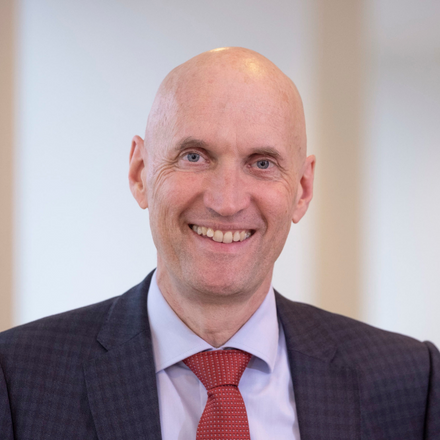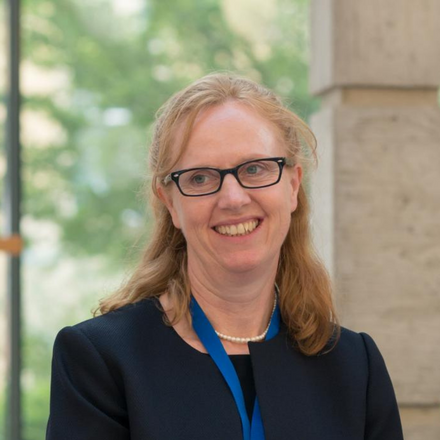This website uses cookies so that we can provide you with the best user experience possible. Cookie information is stored in your browser and performs functions such as recognising you when you return to our website and helping our team to understand which sections of the website you find most interesting and useful.
Preserving elective surgeries during COVID-19: lesson learnt from 2020
18 January 2021
Overview
This expert panel discussed lessons learnt on how to appropriately preserve elective surgeries during the COVID-19 pandemic. The COVID-19 pandemic has exposed vulnerabilities in healthcare systems across Europe and put extreme strain on hospitals. During the initial outbreak of SARS-CoV-2, European hospitals suspended elective surgeries and hospital treatments in hope of reducing infection rates and preserving resources for the treatment of COVID-19 patients. The postponement of surgeries and hospital treatments has resulted in a backlog of procedures with ongoing delays due to the overall diminished capacity of health systems. In the midst of the second wave, it is important to discuss the lessons learnt during the initial outbreak and assess the most effective strategies that can be applied to preserve elective surgeries. This webinar discussed the lessons learnt from the pandemic from different country perspectives. What strategies can be adopted to ensure safety in all elective departments? How can resources be strategically allocated? What best practices can be shared and implemented across European countries?
SPEAKERS

Prof Dr Ernst Kuipers, MD
Prof Dr Ernst Kuipers, MD
Dr Ernst Kuipers trained in gastroenterology and hepatology. In 2012 he was appointed as a member of the Executive Board of Erasmus Medical Center and has chaired the Board since 2013. He was educated in the Netherlands (in Groningen, Enschede, Deventer and Amsterdam) and, after obtaining his PhD, spent several years working in Nashville, USA.
He was appointed as a Professor of Gastroenterology and Hepatology and head of the Department of Gastroenterology and Hepatology in 2000, and in 2006 also became head of the Department of Internal Medicine. Among many other things, he was the driving force behind the launch of the national bowel cancer screening programme. The combination of his academic interests and his managerial experience in a wide range of international organisations and committees has given him a broad outlook on both national and international issues, as indeed he needs in order to perform his duties as chair of the Board.

Helen Pardoe, MD
Helen Pardoe, MD
Dr Pardoe is Associate Medical Director for Quality Improvement at Princess Alexandra Hospital NHS trust and continues working as a consultant colorectal surgeon. She is clinical lead for the trust for Sepsis and Acute Kidney Injury and has recently set up the Lower GI Straight to test service for 2 WW in Harlow.
Before moving to PAH, she was consultant colorectal surgeon in East London for more than 13 years specialising in treating colorectal cancer, diverticular disease and benign anorectal conditions. She has been Lead Clinician for the colorectal MDT from 2006-2015, Clinical Director for Surgical Services 2008-2013 and was an active member of the Colorectal Pathway Board for the Integrated Cancer System London Cancer. She has a particular interest in the use of IT in improving access to health care and the use of digital technology to improve the recording of cancer data.

Dr Giuseppe Banfi
Dr Giuseppe Banfi
Dr Banfi is Director of Scientific Research programs at IRCCS, (Scientific and Teaching Hospital) Galeazzi Orthopaedic Institute and Director of Scientific Research programs at Gruppo Ospedaliero San Donato Foundation in Milan, Italy. From 2012, he is Member of Board of directors of Fondazione Istituto Insubrico Ricerca per La Vita Foundation. From 2006, he is also Associate Professor of Clinical Biochemistry and Clinical Molecular Biology at School of Medicine, University of Milano.

Ms Aleksandra Krygiel-Nael
Ms Aleksandra Krygiel-Nael
Ms Aleksandra Krygiel-Nael is EMEA Acting Head of Government Affairs and Policy for Medical Devices at Johnson&Johnson. She has experience in the area of pharmaceutical policy and has been cooperating with stakeholders and engaging on health innovation policy and value based healthcare on J&J behalf over the last four years. Before joining J&J in January 2017, Ms Krygiel-Nael worked with GSK vaccines in global access and public health. Ms Krygiel-Nael has also diverse communications consultancy background and started her career in the Polish embassy in Germany and the German Parliament. She has a legal background.
Useful Resources
- Covid-19 – The real role of NSAIDs in Italy
- Management of osteoarthritis during COVID-19 pandemic
- Single centre concept of ‘cold site’ elective surgery during the peak of COVID-19 pandemic: A cohort study
- Peri‐operative COVID‐19 infection in urgent elective surgery during a pandemic surge period: a retrospective observational cohort study – Kane – 2020 – Anaesthesia – Wiley Online Library
- The theoretical mortality risk of an asymptomatic patient with a negative SARS-CoV-2 test developing COVID-19 following elective orthopaedic surgery | The Bone & Joint Journal
![]() This webinar was financially supported by Johnson & Johnson.
This webinar was financially supported by Johnson & Johnson.
What our Members say
I have been active in EHMA since the first years of the '90s and I have seen its evolution from a small association of members interested in sharing knowledge on health management practices to the current status of reference and advisory key player for EU, health systems and organisations, stakeholders associations, industry and universities. EHMA is now a unique knowledge hub, policy advisor, community of practice and network of best in class organisations involved in health policy and management. A place where health managers can build their competences, policy-makers and stakeholder associations envision how to implement and sustain change through health management, industry leaders understand how to engage more effectively with health organisations and systems. The right place to nurture and grow health management capabilities and capacity for every stakeholder of health systems.
Prof. Federico Lega, University of Milan, Italy
Health management has a crucial function in shaping public health and health system challenges. The Medical University of Varna, Bulgaria had success in collaborating with EHMA on EU-funded projects that has resourced us to create new health management competencies for the future workforce. In addition to all classical definitions, health management is a science dealing with individuals, groups, and society at large. It is an art contributing to the beauty of our lives and an interactive communication process at all levels of institutions and human energy. I have also had the pleasure to chair the South Eastern European Special Interest Group which gives members a space to discuss and tools to address how health systems are managed in our regions.
Prof. Todorka Kostadinova, Medical University of Varna, Bulgaria
I enjoy the high level of interaction and engagement in EHMA’s activities, in particular during the annual conference where the panel discussions are rich and well prepared. As a hospital manager and professor of health management, EHMA motivates and inspires me to be creative. You go back home feeling energised from seeing old friends and making new connections, as well as being convinced of serving as EHMA’s ambassador. It’s a strong feeling of interdisciplinary engagement, but it also feels like being part of family-like community.
Prof. Sandra C. Buttigieg, University of Malta, Malta
EHMA is a pre-eminent organisation for everyone working in planning, managing and delivering health services across Europe. As a long standing member of EHMA I have always been impressed by the vibrant community of managers, researchers and academics it has created and by the many opportunities for sharing knowledge and funding opportunities it has brought to its members. Its international scope is impressive and its impact is often felt in management and research across European and national health systems.
Prof. Axel Kaehne, Edge Hill University, UK
Health workforce has become more essential in operating, managing and maintaining health systems lately, particularly in crisis and emergency situations. European healthcare professions and the workforce need to be high on the agenda of managers and decision makers. The Health Services Management Training Centre, Semmelweis University in Hungary is a longstanding EHMA member, because it connects us with collaborators and experts, with whom we can have complex debates, from whom we can learn and at the end find solutions in various challenging fields of healthcare management.
Dr Eszter Kovács, Health Services Management Training Centre, Semmelweis University, Hungary
As a hospital administrator and health management professor, I see on a daily basis that the healthcare challenges require talented and skilled managers to transform it. the EHMA membership has been beneficial to bring healthcare management research and education to the demanding healthcare services world, promoting healthcare management competencies and knowledge creation.
Dr Alexandre Lourenco, APAH - Association of Portuguese Hospital Managers, Portugal
Many healthcare systems in Europe and beyond are facing similar challenges which require innovative and creative solutions. EHMA’s annual conference, webinars, Programme Directors’ group and other activities and resources provide incredible opportunities for networking, connecting and sharing experiences. A distinct feature of EHMA is the diversity of members with representation from many countries, sectors and different communities of practice – academic, policy-makers, practitioners, managers, leaders and students. The annual conference is a highlight in the calendar year, offering a friendly, fun and learningful environment for emerging and established members to engage, collaborate and meet up with old and new friends. I am proud to be a member of the EHMA Board.
Prof. Ann Mahon, University of Manchester, UK
Society evolution, pandemics and ageing modify health needs. So, health policies and services are to change dramatically. EHMA, through webinars, workshops and annual conference provides an excellent insight to a professional changing world, favouring closeness to management innovation and the protagonists of these changes. As a primary care services’ manager, participating in EHMA activities is really worth it and allows to involve oneself in the innovation processes.
Dr Antoni Peris Grao, Consorci Castelldefels Agents de Salut (CASAP), Spain